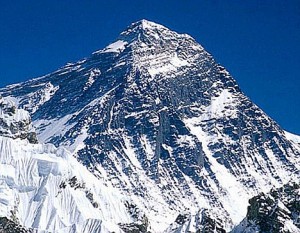News of the recent earthquake in Nepal brought back some poignant memories for me. In 1998 I visited Nepal on a short-term missions project. We were there to help teach church leaders from remote villages the deeper truths about God.
How arrogant I was to think I could teach these saints anything. After hearing their stories of faith, I realized just how little I appreciate the incredible gift of salvation through Jesus Christ.
Nepal, the home of Mount Everest and eight of the world’s ten highest peaks, was at  that time a Hindu monarchy. Its king and most government officials were Hindus and Hinduism dominated the culture (still does). Christians were a tiny fraction of the population, behind Muslims and Buddhists. As a minority, Christians were actively persecuted and some had given their lives for the sake of Christ.
that time a Hindu monarchy. Its king and most government officials were Hindus and Hinduism dominated the culture (still does). Christians were a tiny fraction of the population, behind Muslims and Buddhists. As a minority, Christians were actively persecuted and some had given their lives for the sake of Christ.
There were, however, pockets of believers in various places across Nepal. One such area was in the south-central region. This very rural, remote location was selected as a relatively safe place for church leaders to gather for a leadership conference. On the day we arrived – following a harrowing two-day journey – the conference leaders were finishing a make-shift tabernacle on a hilltop in the jungle. It was made of wooden poles with palm leaves for a roof. A small generator and sound system had been carried in on the backs of the believers.
Nearly 300 pastors and lay-leaders had come from all over that region of Nepal to participate in the conference, which was being led by my friend, a Nepali who had suffered much for the faith. A mutual American buddy called him “the Billy Graham of Nepal.” Two preachers from the U.S., and a worship leader from Hong Kong were the featured speakers.
On the second day of the conference the Nepalese Billy Graham introduced me to a man I will never forget. His name was Vabikan. He was in his 40s but his weathered face looked more like 60. He was tiny, maybe 110 pounds, and somewhat somber. When I heard his story I understood why his countenance was low.
Vabikan had once been a tribal witch doctor, a religious man who worshipped non-existent gods. Many years earlier his daughter became very ill, but despite his best efforts, he could not heal her. A friend suggested he take his girl to a nearby village where there lived an Australian missionary. Perhaps he had the right medicine to cure her disease.
The missionary was sympathetic, but admitted he had nothing to offer the daughter except prayer to the one true God. So he prayed. Vabikan and his daughter went home disappointed and a little confused.
God, however, had a plan. Soon the girl’s condition began to improve. This delighted Vabikan, who wanted to know more about the missionary’s religion. Under the tutelage of the missionary, Vabikan came to faith in Jesus. His excitement was such that he went home and began to tell others about Christ and soon they had a small church going in his village. From there, they started taking the Gospel to other villages and more people became believers.
The regional police eventually got wind of Vabikan’s activities and paid him a visit. He was beaten and told to renounce this new religion. Undeterred, Vabkian kept preaching. The police came back and beat him again. This cycle went on for some time until one day the police hauled him into the jungle and gave him an ultimatum – either renounce Christ or they would hack him to pieces.
Vabikan the faithful replied, “If you kill me today, that’s good, because I will be with Jesus. If you don’t kill me, that’s good too because I can tell more people about Jesus. Either way, it is good.”
The police were flabbergasted by the response and decided to let him go. Must be crazy, they thought. Over the next few years Vabikan would lead hundreds of people from his tribe to salvation in Christ. He became such an important leader that he was elected to represent his tribe in the Napali congress.
The sad Vabikan that I met that day in 1998 had good reason to be despondent. Less than a month before I met him, his wife, son and two grandchildren had died from poisoned food. Some speculated that his enemies were involved, though there was no proof of a crime.
When I asked Vabikan how he could endure such a tragedy, he replied through an interpreter, “I wanted to die myself from the grief, but God came to me and told me that I cannot die yet because there are more people who need to know about Jesus. That is why I will continue to live.”
“For to me to live is Christ, and to die is gain.” Philippians 1:21.
I pray for the believers in Nepal who are suffering because of the earthquake. Their faith is as big as the Himalayas.

